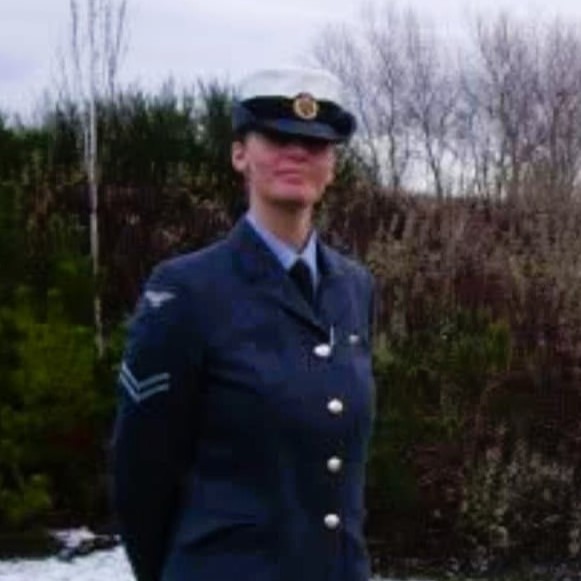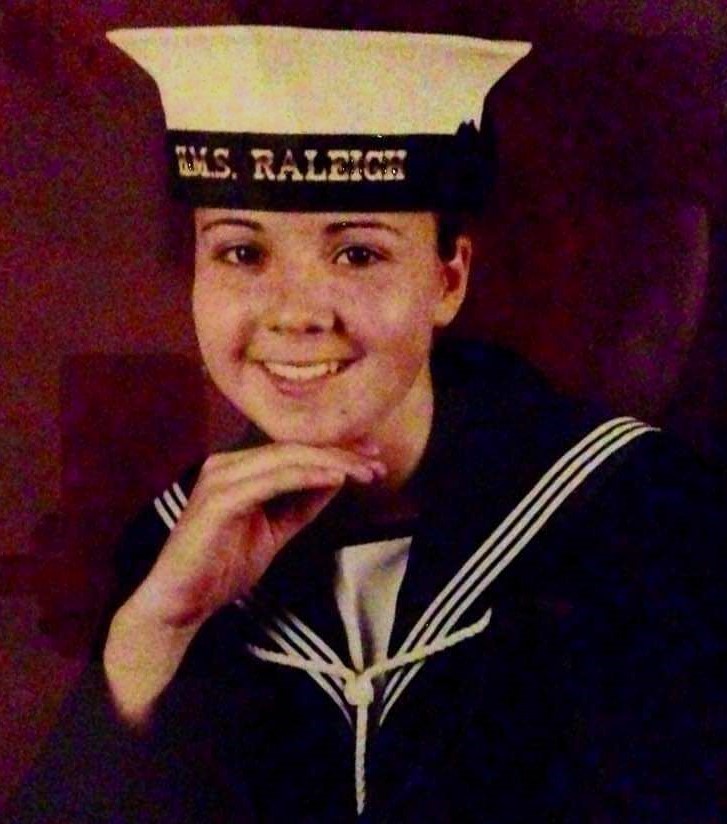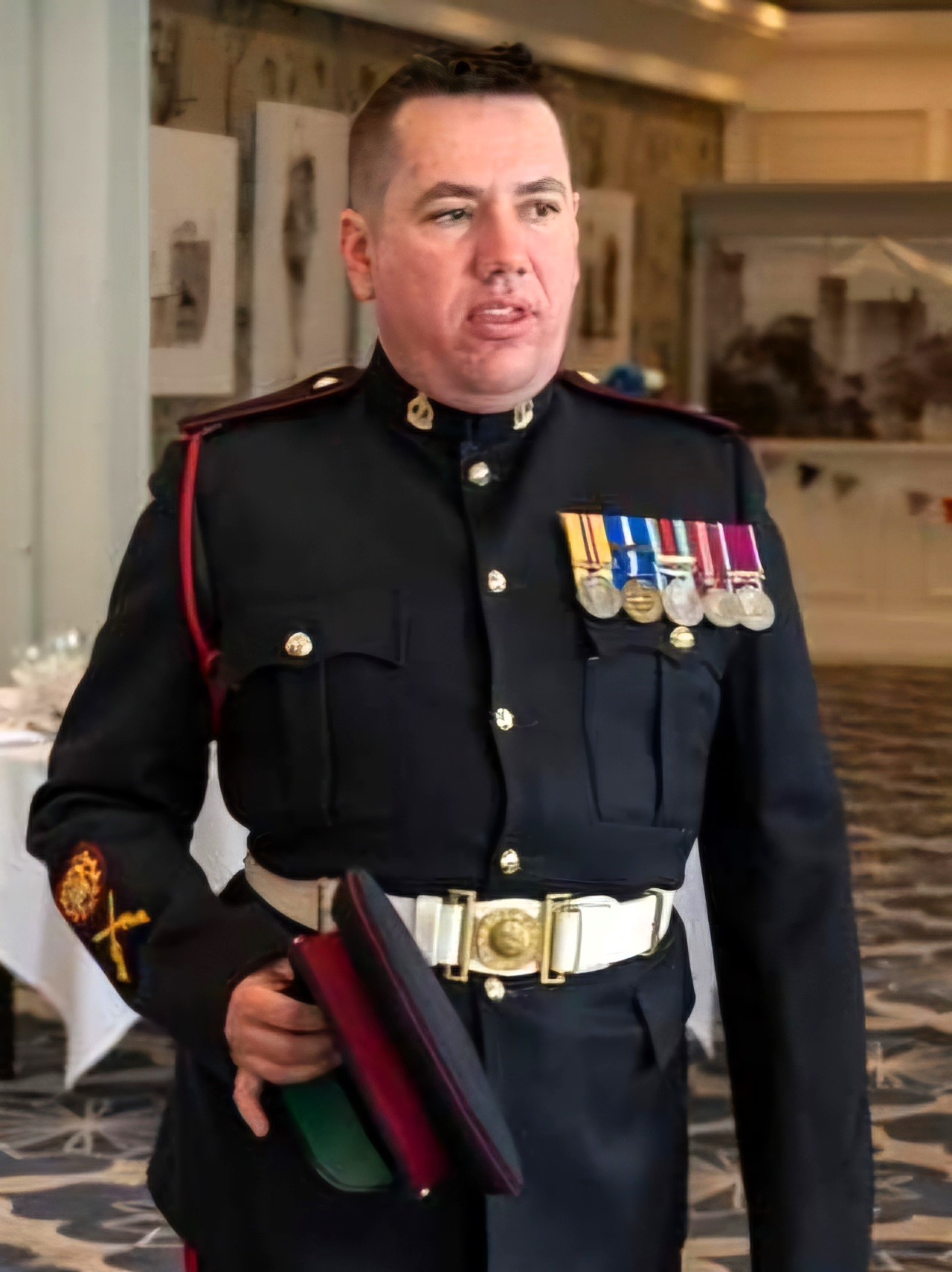Raynesway Station is the Derbyshire headquarters for East Midlands Ambulance Service NHS Trust (EMAS). As one of the largest ambulance stations in the region, it is the operational base for over 150 ambulance staff and a non-emergency patient transport team, with a fleet of specialised emergency ambulances and non-emergency patient transport vehicles.
Like lots of stations and teams at EMAS, Raynesway Station has many ex-forces personnel in its ranks. A mix of clinical and non-clinical specialists, they all serve critical functions for the service, including operations management, clinical delivery, and emergency preparedness.
Four colleagues from the station team have shared their resettlement stories with Civvy Street Magazine, including their different paths to the ambulance service.
Supporting our crews to save lives
Amy Ren ison and Anthony Garratt are both Station Managers at Raynesway. They are responsible for all aspects of people management, welfare and engagement. They also oversee the station’s infrastructure, including the fleet and life-saving equipment, ensuring all staff have what they need to provide high-quality care for patients.
ison and Anthony Garratt are both Station Managers at Raynesway. They are responsible for all aspects of people management, welfare and engagement. They also oversee the station’s infrastructure, including the fleet and life-saving equipment, ensuring all staff have what they need to provide high-quality care for patients.
With 34 years of military service between them, they are well-equipped for their broad and varied role.
Before joining EMAS, Amy served for 12 years in the Royal Air Force Police. She served most of her career at RAF Lossiemouth and completed operational tours around the world before retiring as Corporal.
Amy explains her decision to pursue a career with the ambulance service:
“I joined EMAS because I enjoy the service environment, serving the community, and being part of a large team. I work with a huge mix of people with different skills and backgrounds. It is a great environment to learn and develop, with lots of opportunity for progression.
There’s a role here for everyone who wants to serve. Don’t be put off if, like me, you don’t have a clinical background.”
Anthony joined the Royal Electrical and Mechanical Engineers in 1990, working in Germany for 17 of his 22 years of service. He retired as the Brigade Recovery Warrant Officer and joined EMAS as an Emergency Care Assistant.
Like Amy, Anthony found he had many of the transferable skills required to excel within the ambulance service. After nine years on the road responding to emergency 999 calls, he progressed to Station Manager.
“There is no doubt that my time and experience in the Army supported me to get this role and to do it well. It’s demanding and challenging, but very rewarding.
The armed forces and the ambulance service have similar values and standards. I strongly believe that anyone from the armed forces could have a fulfilling career within the ambulance service. I would recommend this career to anyone looking for resettlement.”
Delivering clinical excellence
 Raynesway station is the base for many colleagues who provide emergency life-saving care, including paramedics, technicians, emergency care assistants, and specialist practitioners.
Raynesway station is the base for many colleagues who provide emergency life-saving care, including paramedics, technicians, emergency care assistants, and specialist practitioners.
Kirsty Harvey is a registered paramedic and Divisional Senior Clinical Leader (DSCL), part of Derbyshire’s clinical leadership team. She retired from the Navy as a Leading Medical Assistant in 2011, choosing to train as a paramedic and begin her career in the NHS.
“The NHS aligns with my professional values and has given me opportunities for personal and professional growth, as well as flexibility. The move to EMAS allowed me to return home and start a family. Since I had my first child, I’ve been supported to work flexibly.”
Kirsty provides specialist clinical support and guidance to colleagues serving on the frontline.
“Many skills I acquired in the military, such as leadership and teamwork, are highly transferable to the ambulance service. As a clinical leader, I support clinical development for operational staff, including training, supervision, and mentoring. Being part of a dedicated team and contributing to our continuous improvement is incredibly rewarding.”
Emergency preparedness, resilience, and response
 As with all emergency services, the ambulance service needs to be prepared for anything. The Emergency Preparedness Resilience and Response (EPRR) team ensures that EMAS is able to respond appropriately and safely to a wide range of emergencies – from extreme weather to a security incident.
As with all emergency services, the ambulance service needs to be prepared for anything. The Emergency Preparedness Resilience and Response (EPRR) team ensures that EMAS is able to respond appropriately and safely to a wide range of emergencies – from extreme weather to a security incident.
Alan Crozier is the EPRR Manager for Derbyshire. Before joining EMAS in 2023, he served with the Duke of Lancaster’s Regiment and the Royal Army Medical Corps. He retired as Warrant Officer Class 2 after 22 years of service.
Alan explains the importance of his role to the ambulance service:
“It’s our team’s duty to ensure EMAS’s compliance with the Civil Contingencies Act (2004). This includes safeguarding our staff, patients and communities from harm. I support commanders at all levels with incident response planning and staff training.
No two days are the same – every day offers challenging and changing work. My experience shows that there are many different opportunities to use your military skills and background to begin a career in the ambulance service.”
Read the article
- Civvy Street Magazine (August/September 2025; p. )
Join Team EMAS
EMAS is a Veteran Aware organisation and accredited with a Gold Award in the Ministry of Defence Employer Recognition Scheme.
We offer a guaranteed interview scheme to applicants with a military service history who:
- meet the criteria outlined in the job specification
- and are successful at the initial screening stage.